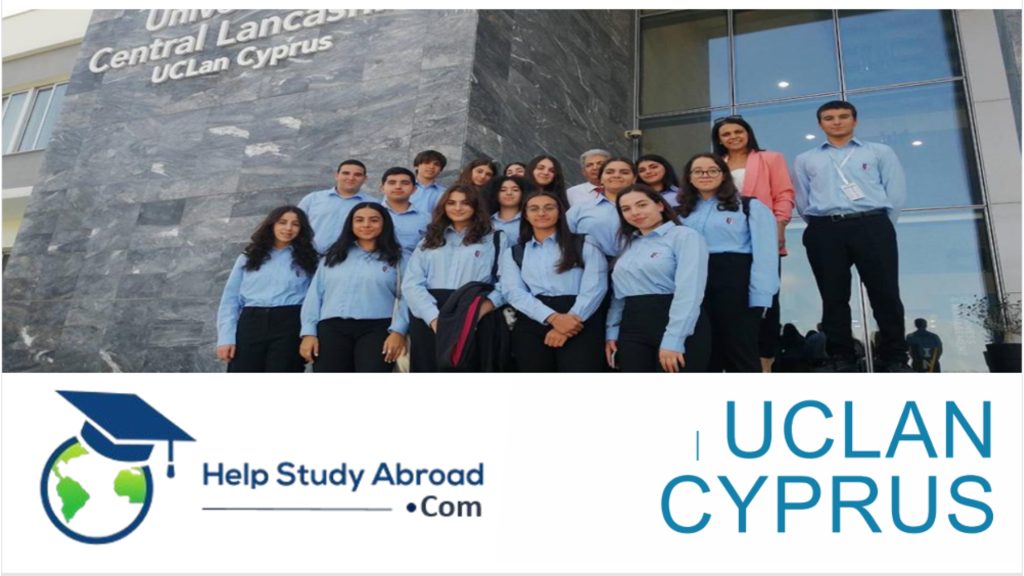Why Study in Cyprus?
- Affordable Education: Cyprus offers budget-friendly education options for students, with many colleges providing scholarships.
- High-Quality Education: The Cypriot government prioritizes educational standards, ensuring a quality learning experience.
- American-Style Programs: Students have the freedom to choose from a wide range of courses, following an American-style curriculum.
- Low Cost of Living: Cyprus is one of the most affordable European countries to live and work in.
- Networking Opportunities: As an EU country, Cyprus offers excellent opportunities for students to build international networks.
- Cultural Hub: With its rich history, Cyprus is a cultural and historical center.
- English Language Programs: English is widely spoken, and many universities offer a variety of courses in English.
Climate Conditions
- Sunny Weather: Cyprus enjoys 300–340 sunny days per year, making it an ideal location for those who enjoy warm climates.
- Mild Winters: Winter temperatures range between +13 to +15°C, while summer temperatures rise to +30 to +36°C.
- Warm Sea: Cyprus is the only European country where the sea remains warm enough for swimming even in November.
- Cultural Richness: The island boasts three UNESCO World Heritage sites and an array of ancient sites, churches, and museums.
- Natural Beauty: With incredible flora and fauna, Cyprus is a paradise for nature lovers and hiking enthusiasts.
Average Salary in Cyprus
- Salary Range: The average monthly salary in Cyprus is between €1,800 and €2,200, depending on the industry, qualifications, and experience.
- Private vs Public Sector: Salaries in the private sector tend to be higher than in the public sector, except for high-ranking government positions.
Cyprus Passport Ranking
- Global Rank: The Cypriot passport ranks 16th on the Guide Passport Index.
- Visa-Free Travel: It allows visa-free access to 178 destinations, including the UK, UAE, Japan, and the EU.
- Visa Requirements: Visa is still required for 52 countries, including China, India, and the USA.
Economic Conditions of Cyprus
- GDP: Cyprus’s GDP is estimated to be $60 billion.
- Growth Rate: The economy has shown a consistent growth rate of 2.4% over the past decade.
- Sector Breakdown: Services account for 85% of GDP, followed by manufacturing (6%) and agriculture (2%).
Safety in Cyprus
- 5th Safest Country: Cyprus ranks 5th among the safest countries globally, according to a study by Insurly.
- Low Crime: With minimal violent crime and terrorist threats, Cyprus is an exceptionally safe country to live in.
About UCLan (University of Central Lancashire) Cyprus
- Established in 1828: UCLan is a leading modern university recognized in QS World Rankings.
- International Campus: UCLan Cyprus offers students the chance to study in Larnaka, while being part of a global community of over 42,000 students.
- Accreditation: The university offers double-awarded degrees, recognized across Europe and beyond.
Top 10 Benefits of Studying at UCLan Cyprus
- International Accreditation: Earn a degree recognized in the UK, Cyprus, and globally.
- Top Schools: UCLan Cyprus has some of the best business, law, and science schools in the country.
- Rankings: The university ranks among the top 6.5% globally and is highly ranked in fields like hospitality and tourism.
- Student Mobility: Participate in Erasmus+ and other global student exchange programs.
- Academic Excellence: UCLan lecturers are PhD-qualified and research-active, ensuring top teaching quality.
- Modern Campus: The campus is state-of-the-art and has won international awards for innovation.
- Global Reach: Strong ties with industry partners and global professional bodies.
- High Student Satisfaction: 92% of graduates are satisfied with their experience, and 98% are employed or furthering their studies.
- Affordable Living: Students can enjoy a Mediterranean lifestyle for an average cost of €300/month, including accommodation and food.
- UK Education at Lower Cost: UCLan Cyprus offers a UK education without the high living costs associated with studying in the UK.
Bachelor’s Programs (4 Years)
- BA (Hons) Hospitality and Tourism Management
- BA (Hons) Business Administration
- Bachelor of Law LLB (Hons)
- BSc (Hons) Computing
- Tuition Fees:
- €6,500 for the 1st year, and €3,000 per year for subsequent years.
- Eligibility:
- 10+2 education qualification.
- IELTS 5 bands, PTE 58, or TOEFL 71.
Master’s Programs (18 Months)
- MBA (Master in Business Administration)
- MA Hospitality, Tourism & Events Management
- Master of Law LLM (Hons)
- MSc Computing
- Tuition Fees: €7,500 total.
- Eligibility:
- Graduate degree.
- IELTS 5 bands, PTE 58, or TOEFL 71.
Foundation Program (1 Year)
- Foundation English Program
- Tuition Fees: €5,500.
- Eligibility:
- 10+2 or graduate degree.
- IELTS 4 bands, PTE 43, or TOEFL 42.
Application Process
- Submit education certificates and passport copy.
- Receive your offer letter.
- Pay the €50 application fee.
- Submit English test results.
- Submit visa documents as per checklist.
- Pay tuition fees.
- Receive your visa within 30-45 days and travel to Cyprus.
Required Documents for Visa Application
- Copy of passport.
- High school/Bachelor’s certificate.
- English language certificate.
- Medical report.
- Bank balance letter (€7,000).
- Bank statement.
- Police clearance certificate (PCC).

FAQs
1.What are the tuition fees for studying in Cyprus?
Tuition fees range from €5,500 for foundation programs to €7,500 for full master’s programs.
2. Is English proficiency required?
Yes, IELTS, TOEFL, or PTE scores are required depending on the program.
3. Can rejected visa cases reapply?
Yes, previously rejected cases can apply.
4. What is the cost of living in Cyprus?
On average, living costs are around €300/month, including accommodation and food.
5. Is Cyprus a safe country to study in?
Yes, Cyprus is ranked as the 5th safest country in the world.



